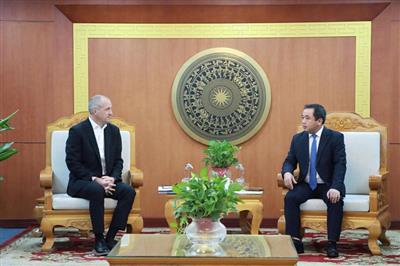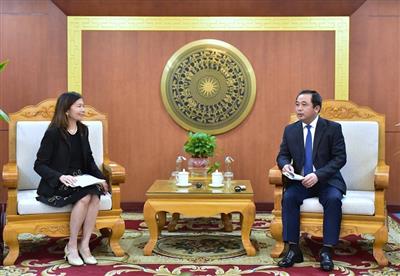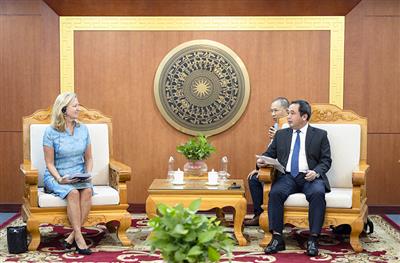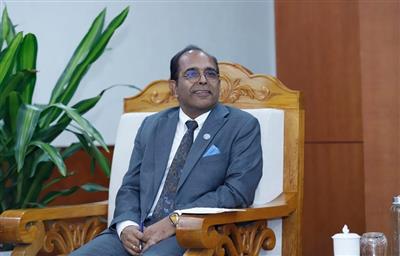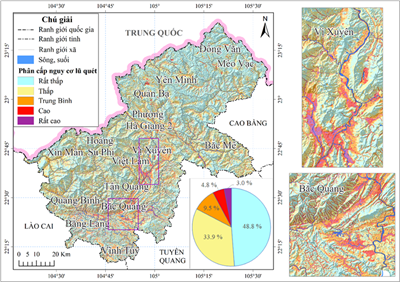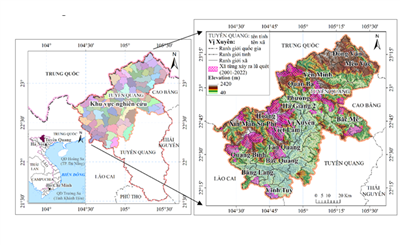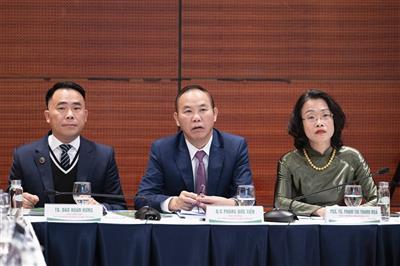
United Nations commends Vietnam’s efforts in energy system restructuring
05/06/2025TN&MTDuring a working session on June 5 with Deputy Minister of Agriculture and Environment Le Cong Thanh, Mr. Selwin Hart, Special adviser to the UN Secretary-General on climate action and just transition, commended Vietnam’s strong efforts in restructuring its energy system toward a greener and more equitable model. He noted that Vietnam is emerging as a regional exemplar in ASEAN for its renewable energy development, sustainable climate transition, and strong commitment to updating its Nationally Determined Contributions (NDCs) and realizing the goals of the Paris Agreement.
Pioneering role in energy transition and NDC update
Deputy Minister Le Cong Thanh expressed appreciation for the support provided by UN agencies such as FAO, UNDP, IFAD, and UNIDO in the fields of agriculture and environment in Vietnam. These organizations have made significant contributions through technical programs, emergency assistance, and capacity building to enhance disaster resilience, thereby advancing the country’s Sustainable Development Goals (SDGs).
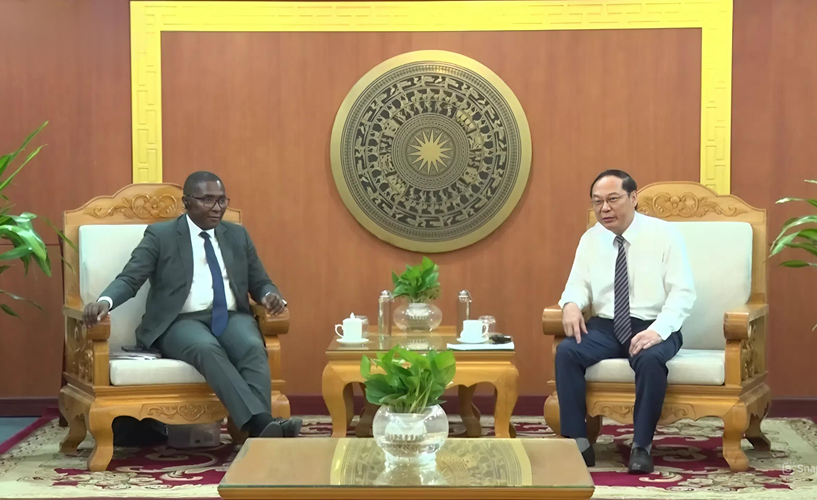
Mr. Selwin Hart, Special Adviser to the UN Secretary-General on Climate Action and Just Transition, met with Deputy Minister Le Cong Thanh on June 5 and praised Vietnam’s efforts in building a greener, more equitable energy system and advancing its Paris Agreement commitments
According to the Deputy Minister, the Vietnamese government is actively implementing the Just Energy Transition program, underscoring its concrete commitment to reducing greenhouse gas emissions. This is reflected in the ongoing revision of Power Development Plan VIII, the formulation of a new energy pricing framework, and the concurrent strengthening of power transmission infrastructure—all of which are being undertaken to ensure energy security and long-term sustainability.
The Ministry of Agriculture and Environment is currently leading the development of the third iteration of Vietnam’s NDC (NDC 3.0). This update process is receiving technical and financial assistance from UNDP and international partners, with the goal of creating a nationally appropriate emission reduction pathway and mobilizing global resources to fulfill climate commitments.
Deputy Minister Le Cong Thanh expressed hope that the UN would serve as a bridge and advocate for developing countries, particularly in addressing policy barriers such as high tariffs on renewable energy technologies. Lowering these tariffs and improving market access for clean technologies would be a crucial step toward accelerating the green energy transition in Vietnam and other developing nations.
UN recognizes Vietnam’s commitment and vows continued support
In response, Mr. Selwin Hart welcomed Vietnam’s notable progress in promoting a just energy transition through its participation in the Just Energy Transition Partnership (JETP). He praised Vietnam’s ability to balance economic and social development with emission reduction and climate adaptation goals.
Mr. Selwin Hart emphasized that Vietnam is now among the ASEAN leaders in renewable energy development. Over the past decade, the cost of renewable energy investment has fallen by up to 40%, reflecting the effectiveness of strategic investment and sustained political commitment. He acknowledged that energy transition is never an easy task—even for developed nations—but noted that Vietnam has made remarkable strides since the signing of the Paris Agreement.
The UN adviser also shared upcoming initiatives by the United Nations, including a high-level dialogue between the UN Secretary-General and heads of state in September during the UN General Assembly. These dialogues will focus on progress in NDC implementation and tailored support from UN agencies for each country.
At the meeting, Ms. Pauline Tamesis, UN Resident Coordinator in Vietnam, also expressed strong support for the NDC 3.0 update process and affirmed the UN system’s long-term commitment to Vietnam. She emphasized that NDCs should be seen as a shared responsibility requiring effective coordination and engagement from all stakeholders—national and local governments, the public and private sectors, and civil society organizations.
With continued international support and especially strong backing from the United Nations, Vietnam is expected to maintain its leadership role in the regional green energy transition and solidify its position as a pioneer in promoting sustainable, just, and inclusive development.
Minh Thao




